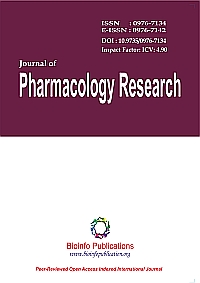
“Cannabidiol (CBD), the main nonpsychotomimetic compound from Cannabis sativa, inhibits experimental seizures in animal models and alleviates certain types of intractable epilepsies in patients.
Here we tested the hypothesis that CBD anticonvulsant mechanisms are prevented by cannabinoid (CB1 and CB2) and vanilloid (TRPV1) receptor blockers. We also investigated its effects on electroencephalographic (EEG) activity and hippocampal cytokines in the pentylenetetrazole (PTZ) model.
Pretreatment with CBD (60mg/kg) attenuated seizures induced by intraperitoneal, subcutaneous, and intravenous PTZ administration in mice. The effects were reversed by CB1, CB2, and TRPV1 selective antagonists (AM251, AM630, and SB366791, respectively). Additionally, CBD delayed seizure sensitization resulting from repeated PTZ administration (kindling). This cannabinoid also prevented PTZ-induced EEG activity and interleukin-6 increase in prefrontal cortex.
In conclusion, the robust anticonvulsant effects of CBD may result from multiple pharmacological mechanisms, including facilitation of endocannabinoid signaling and TRPV1 mechanisms. These findings advance our understanding on CBD inhibition of seizures, EEG activity, and cytokine actions, with potential implications for the development of new treatments for certain epileptic syndromes.”
https://www.ncbi.nlm.nih.gov/pubmed/28821005
http://www.epilepsybehavior.com/article/S1525-5050(17)30322-0/fulltext

 “Epilepsy is an important disease that affects brain function, particularly in those under 3 years old. Uncontrolled seizures can affect cognitive function and quality of life. For these reasons, many trials have been conducted to investigate treatments for pediatric epilepsy. Currently, many antiepileptic drugs are available for the treatment of epilepsy, but cases of intractable epilepsy continue to exist.
“Epilepsy is an important disease that affects brain function, particularly in those under 3 years old. Uncontrolled seizures can affect cognitive function and quality of life. For these reasons, many trials have been conducted to investigate treatments for pediatric epilepsy. Currently, many antiepileptic drugs are available for the treatment of epilepsy, but cases of intractable epilepsy continue to exist.





